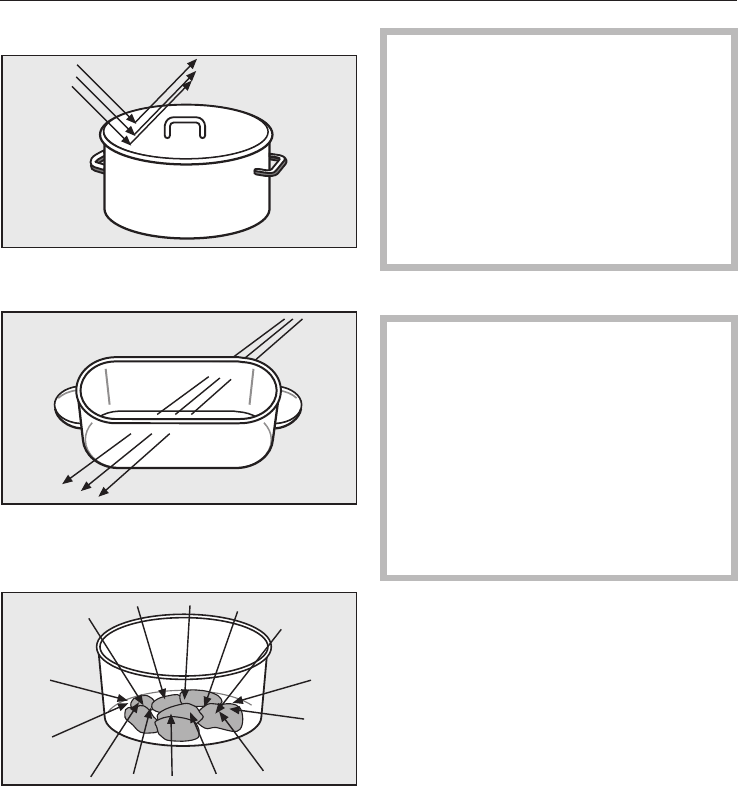
Microwaves
–
are reflected by metal,
– pass through glass, porcelain,
plastic and card,
–
and are absorbed by food.
Material and shape
The material and shape of containers
used affect cooking results and
durations. Heat distribution is more
even in round and oval shaped flat
containers than in rectangular
containers, providing better results.
Containers and lids with hollow
handles or knobs in which moisture
can collect are unsuitable, unless
the hollowed handles are
adequately vented.
Without vent holes, pressure can
build up, causing the container to
crack or shatter with the danger of
injury.
Metal
Metal containers, aluminium foil,
metal cutlery, and china with
metallic decoration such as gold
rims or cobalt blue must not be used
on microwave mode.
Metal reflects microwaves and
obstructs the cooking process.
Also, avoid using plastic pots where
the foil lid has not be completely
removed.
Exceptions:
–
Ready-meals in aluminium foil
dishes.
These can be defrosted and reheated
in the microwave oven, if
recommended by the manufacturer.
Important: Remove the lid and make
sure the foil dish is at least 2 cm from
the oven walls at all times.
As food is only heated from the top, it is
better to remove the food from the
aluminium foil container and transfer it
to a dish suitable for a microwave oven.
The heat distribution will be more even.
Suitable containers for microwave ovens
26


















